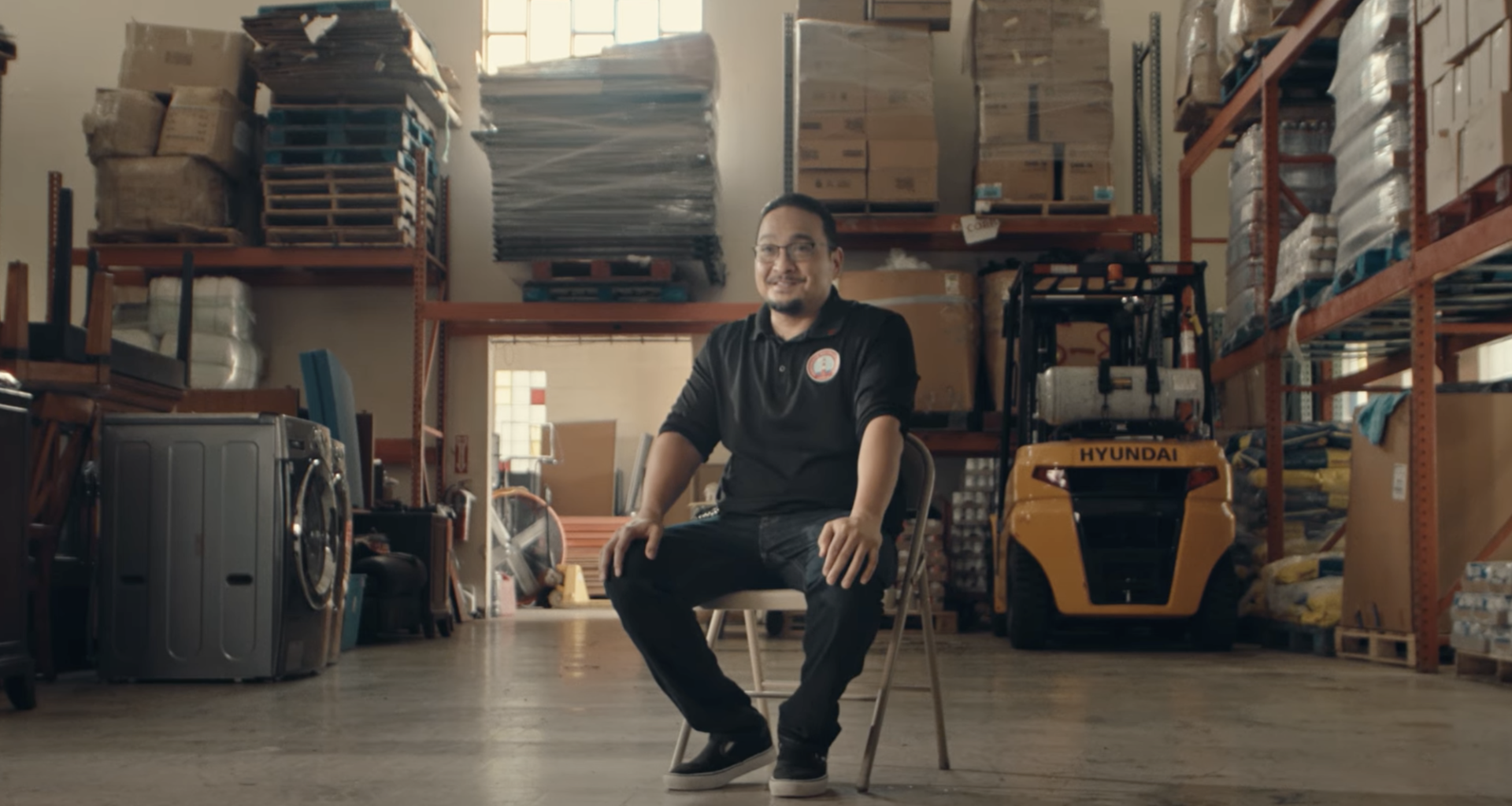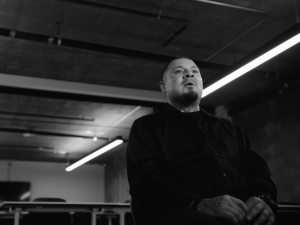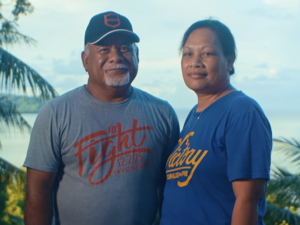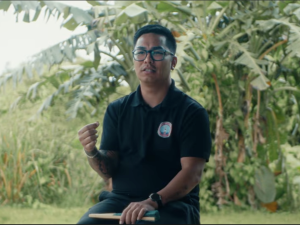Eric Borja is a local musician on Guam (a US territory in the South Pacific), known for his candid exploration of recovery in his lyrics. The stories of his struggles with substance abuse and subsequent recovery woven into his music serve as a thematic counterpoint to his laid-back, reggae instrumentalism.
And in his day job, he works as a case manager at The Salvation Army’s Lighthouse Recovery Center, helping guide men through the process of recovery, as they fight to break free from the rapidly spreading problem of meth on the island.
Listen in as Eric tells the story of how he nearly lost his music—and his life—to substance abuse, and how he fought tooth and nail to get it back.
Below is a transcript of the video edited for readability.
Eric Borja: I grew up in the north side of Guam. Our schools were all in the village. You know, raised with really good morals and values in life, but it was a fend for yourself kind of thing.
We learned how to be very independent. I was that kid that, you know, as long as I didn’t get caught I was doing it, right?
I started using marijuana when I was 12 or 13 years old. It got to the point where everything that I did, I had to try to be under the influence of marijuana. The mentality was that we’re from an island, you know, we’re living here, and, you know marijuanas grows wild around here, right?
I wasn’t really sure if that was what was really happening, but, you know, it sounded good at the time, right? My friend Tom, you know, he had a guitar, and then I started trying to ask him to show me how to play it, then my mom got me a guitar on my birthday, and I used to practice every day.
I used to play heavy metal, you know, like rock and roll. Slayer, Pantera, Metallica. Me and my friends from high school, we made a band.
I wrote some songs, but a lot of them were about just getting wasted. We stopped after I ended up leaving to the states to California. That’s where my addiction got worse.
I was working at a Harley Davidson shop hanging out with some guys that I was working with. One of my coworkers had cocaine. I swore I’d never snort anything up my nose, but I don’t know, man. I was hopped up on some alcohol and I didn’t even think twice about it.
Never thought I’d do that. A week later, I got introduced to meth. It was off to the races, man. I remember somebody saying, “It’s the devil.” “It’s gonna suck you in.”
And that’s what it did, man. It took me and everything I had. Music stopped for a long time. The drugs got in the way. I got busted a year later. I was using meth very heavily. You know, I was on probation for about three and a half years.
2007. I’m driving a car that’s not registered, no insurance. My uncle bought it from the auction. We’re supposed to drive it across three states to get to Houston, Texas.
The cops pulled up right behind me. And [I] tried to do a u-turn, go back to the house to make it look like I forgot something. I got out of the car, and I was trying to walk into the house. The cops told me, “Stop.” “Do not move.” “Put your hands up.”
They started searching the car. In my bag in the backseat, they found drugs and all that. They broke it out, put it on the car. Got arrested that day and got charged for possession. That was the beginning of life starting to go into treatment.
I was in and out of treatment, kept getting terminated from programs because of not complying with what they were telling me to do. It was either jail time or this, right? And I was just like, you know, I’m just going to do drugs, and that was supposed to be my life, but I ended up getting that light bulb that lit up on top of my head.
And I was like, what? All I have to do is just stay off drugs and I won’t go to jail? I thought the system was always trying to set me up to get me arrested. I was very hesitant about it, but I had to learn how to trust in that program. It actually got me to get clean.
One of my old counselors, he goes, “I know you guys from Guam, the Chamorros, you guys like to play music. Maybe you should connect back with your culture, make it part of your treatment plan to get back into the Guam Club in San Diego,” right?
We had a recovery day over in downtown San Diego, and my friend, he wrote a song, he was a rapper, and I played guitar, told him I had a guitar and we played, and we just, we performed.
The whole courtyard was filled, and it was just people in recovery, and that was, like, my first time performing in front of a lot of people in a long time.
I was so nervous. ‘Cause I wasn’t hopped up on drugs or anything. It took me a while to get used to playing, but today? Put me up there. I’ll do it.
And I produced it and put it on a CD, and I ended up coming back to Guam when I thought I would never come back to Guam. I feel like I have purpose today, and I know God’s will for me is to do what I’m doing today.
Today, Eric works as a counselor at The Salvation Army Lighthouse Recovery Center on Guam.
I do group counseling. It’s very fulfilling. I’m actually working on my master’s degree now in social work.
Can’t believe I’m doing what I’m doing today, especially where I came from. It gives me goosebumps just thinking about it, you know?
Do Good:
- See more videos like this in our video feed.
- Listen to the full version of “No More Freedom” by Eric Borja.












